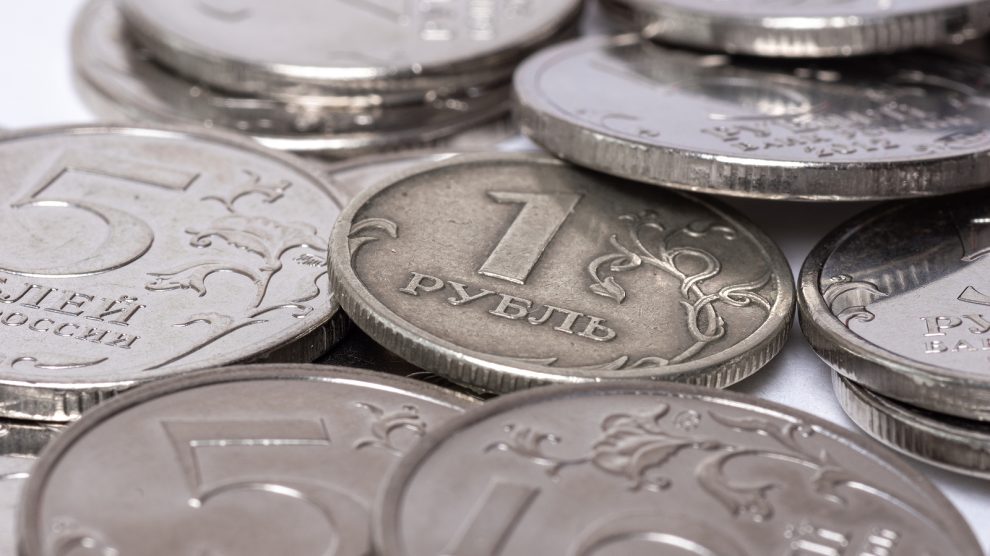Hungary has been forced to exit a Russian-controlled development bank the US has suggested, ‘opens the door for the Kremlin’s malign influence activities in Central Europe and the Western Balkans’.
Less than 24 hours after the Unites States imposed sanctions on leading officials of the Russian-controlled but Budapest-based International Investment Bank (IIB), Hungary confirmed on April 13 that it would exit its participation in the bank, placing the institution’s future in question.
“Hungary’s government has decided that the US sanctions have rendered the International Investment Bank’s operations meaningless; therefore, it recalls state delegates and withdraws from the international financial institution,” Hungary’s Economic Development Ministry said in a statement.
Hungary, which has consistently lobbied against the imposition of sanctions on Russia and whose foreign minister, Péter Szijjártó, was in Moscow this week, initially pushed back against the sanctions announcement, but appears to have quickly concluded that its participation was no longer tenable.
- Russia’s continuing stranglehold on emerging Europe’s nuclear sector
- ‘All thunder and no lightning’: New campaign aims to speed up Europe’s fossil fuel exit
- Explainer: What is Hungary doing in the Organisation of Turkic States?
The previous day, the US imposed sanctions on two Russian citizens, Nikolay Kosov and Georgy Potapov, and Imre Laszlóczki, a former Hungarian ambassador to Kazakhstan and Azerbaijan.
Kosov is the former chairman of the IIB, while Potapov and Laszlóczki are both on the IIB’s management board.
In a statement, the US Treasury Department’s Office of Foreign Assets Control (OFAC) said, “The IIB’s presence in Budapest enables Russia to increase its intelligence presence in Europe, opens the door for the Kremlin’s malign influence activities in Central Europe and the Western Balkans, and could serve as a mechanism for corruption and illicit finance, including sanctions violations.
“The government of Russia is prepared to dedicate additional resources, including government of Russia guarantees and subsidies, to save the bank from a looming default.”
OFAC added that IIB executives had “coordinated with Russian Federation officials on IIB business even after Russia’s further invasion of Ukraine in February 2022.”
US Ambassador to Hungary David Pressman meanwhile told a news conference in Budapest shortly after the OFAC announcement that the ongoing presence of what he called an “opaque Kremlin platform” in the heart of Hungary, “threatens the security and sovereignty of the Hungarian people, their European neighbours, and their NATO allies.”
“With this announcement, the United States is demonstrating that we will take action in response to Hungary’s choices and to curb the access of Russia and sanctioned Russian persons to the international financial system,” Pressman added.
Emerging Europe’s withdrawal
Pressman further added that the US had raised concerns over the presence of the bank but that unlike other NATO allies, Prime Minister Viktor Orbán’s government had dismissed his concerns and remained committed to hosting the IIB. Immediately following Russia’s full-scale invasion of Ukraine, other European Union and NATO member states holding stakes in the bank – Bulgaria, Czechia, Romania, and Slovakia – all said that they would end their participation.
Czechia, Poland and Slovakia have already completed their withdrawal, while Romania will exit in June and Bulgaria by August. According to the bank’s website, at the end of January Hungary held a 25.27 per cent stake in IIB, the second biggest share after Russia with 45.44 per cent. Cuba, Mongolia, and Vietnam are the bank’s other shareholders.
Founded in 1970 with the objective of fostering trade and economic cooperation within the Soviet Council for Mutual Economic Assistance, better known as Comecon, it was widely reported earlier this year that the bank had used up nearly all of its liquidity reserves after being hit by EU sanctions.
In 2019, Hungary passed legislation to allow the IIB to move its headquarters to Budapest. The legislation granted privileges and immunities in accordance with its status as a treaty-based international development bank, including diplomatic status (and immunity) for its staff.
In February, Gergely Gulyás, Minister for Hungary’s Prime Minister’s Office, admitted that the bank was in “an extremely difficult situation”.

‘Like it or not’
During his visit to Moscow on April 11, Szijjártó signed new agreements to ensure its continued access to Russian energy, securing deals to expand gas flows from Russia and renewed a financing agreement on its nuclear power plant.
“As long as the issue of energy supply is a physical issue and not a political or ideological one, Russia and cooperation with Russia will remain crucial for Hungary’s energy security, like it or not,” Szijjarto said.
Rosatom, Russia’s state-owned nuclear energy company, is one of the few Russian companies still operating in the EU, spared – so far – direct sanctions, although some entities associated with the firm were sanctioned by the US on April 12.
According to the World Nuclear Association, nuclear energy currently accounts for almost half of Hungary’s electricity generation. In August 2022, Hungary issued Rosatom a permit to construct two new reactors at its Paks nuclear Power Plant.
Ukrainian officials have been urging the EU to put Rosatom on its sanctions list for almost a year now, especially after the company was incriminated in Russia’s seizure of the Zaporizhzhia nuclear power plant.
Following a visit to Kyiv earlier in April, German Economy Minister Robert Habeck urged the EU to impose sanctions on Russian nuclear fuel, “even if that means a change for the countries that still equip nuclear power plants with Russian uranium”.
Orbán has consistently threatened to veto any EU sanctions imposed on Rosatom. His stance is unlikely to soften given what Hungary will view as its forced withdrawal from the IIB.
Unlike many news and information platforms, Emerging Europe is free to read, and always will be. There is no paywall here. We are independent, not affiliated with nor representing any political party or business organisation. We want the very best for emerging Europe, nothing more, nothing less. Your support will help us continue to spread the word about this amazing region.
You can contribute here. Thank you.


